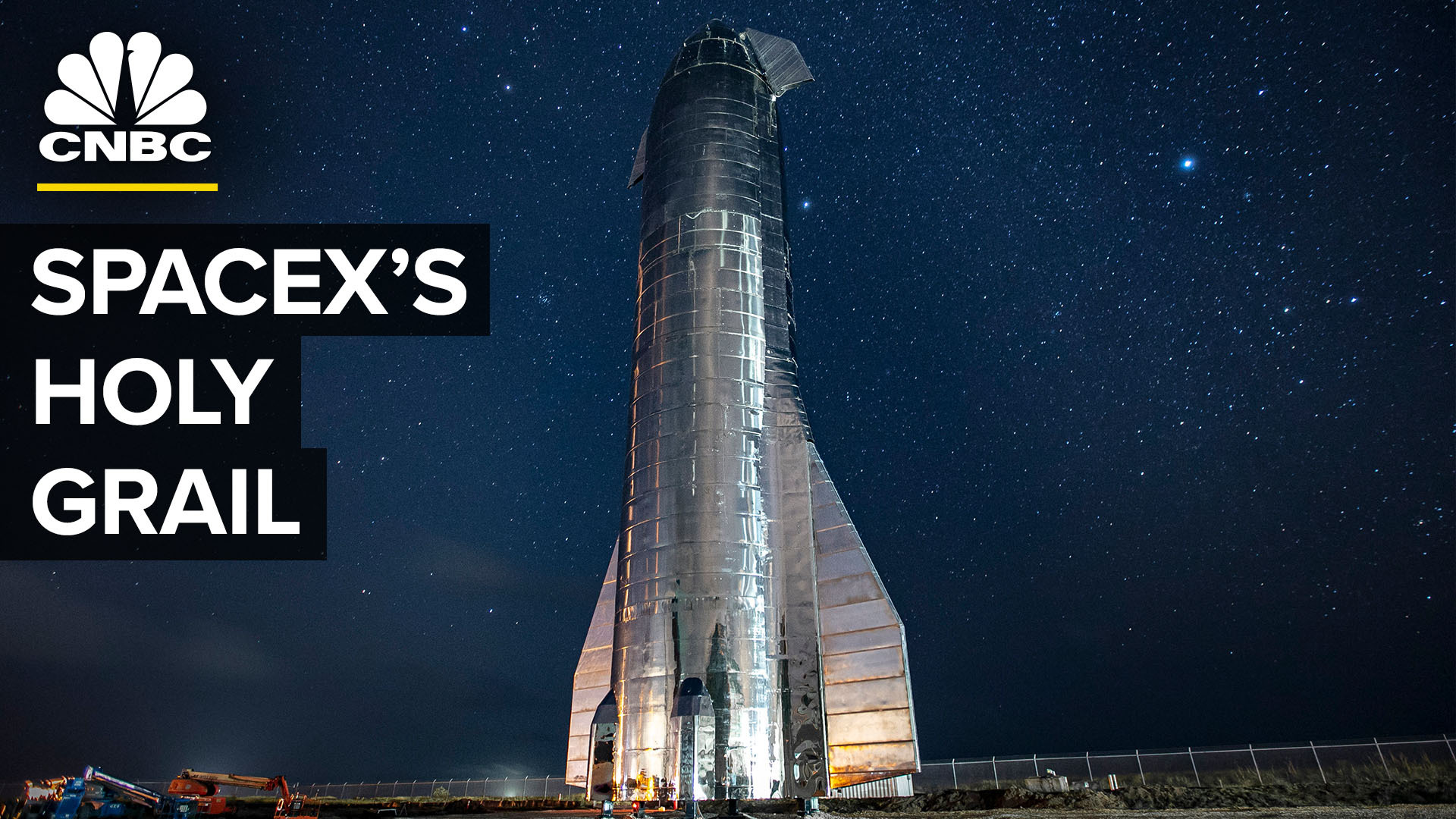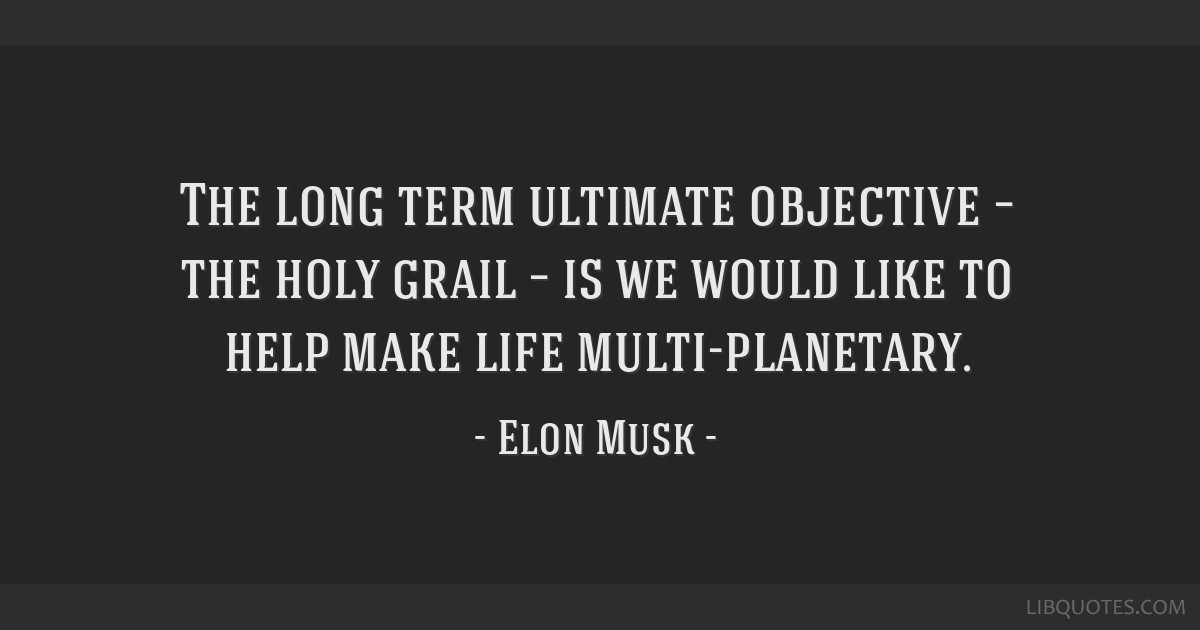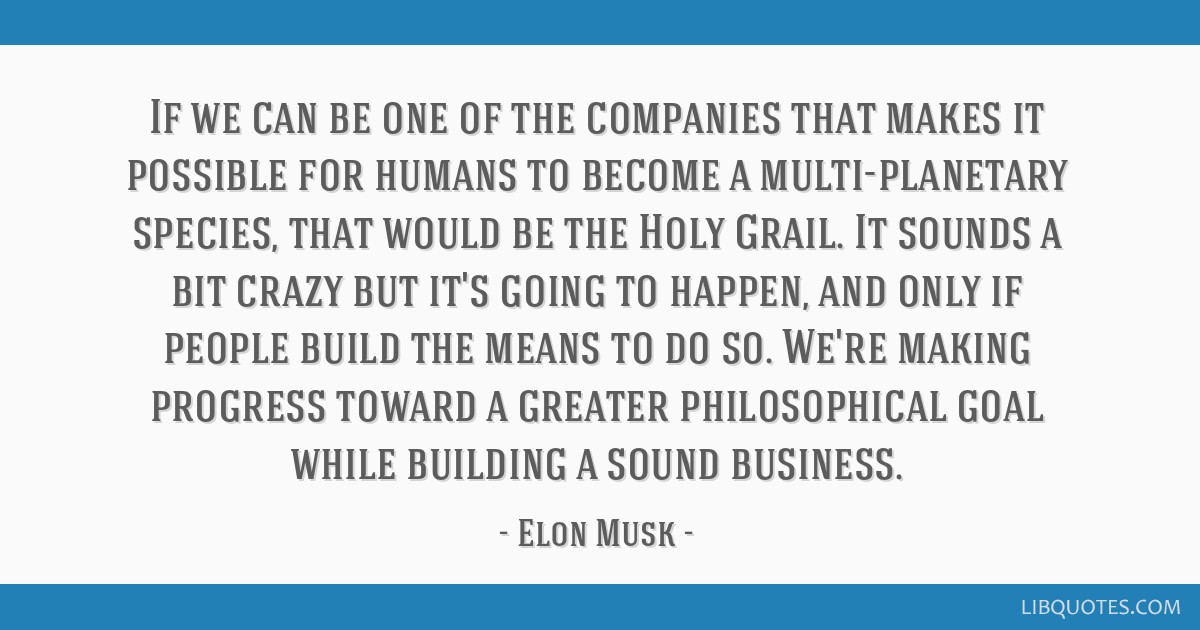Elon Musk’s Impact on the Future of Space Exploration
By Betty Bassett
Photo by SpaceX on Unsplash
Elon Musk's journey to becoming one of the most influential figures in space exploration began long before SpaceX's first rocket launch. As a child, Musk was captivated by the worlds crafted in science fiction novels. These stories did more than entertain; they instilled a belief in the boundless potential of humanity. Musk often cites books like "The Hitchhiker's Guide to the Galaxy" and "Foundation" as pivotal in shaping his outlook. These narratives, filled with interstellar travel and advanced civilizations, laid the groundwork for Musk's aspirations. He envisioned a future where humanity would not be confined to Earth, but would instead become a multi-planetary species.
Musk's philosophical foundation is deeply rooted in the concept of existential risk—the idea that humanity must safeguard its future against possible extinction events. This belief drives his relentless pursuit of space exploration. For Musk, spreading human life to other planets is not just an ambition but a necessity. It is this sense of urgency that fuels his endeavors, pushing boundaries and defying conventions.
His vision for humanity extends beyond survival. He dreams of a future where humans are explorers and innovators, constantly pushing the frontiers of knowledge and existence. This vision is not merely about escaping a doomed Earth but about inspiring a new era of growth and discovery. Musk’s Mars colonization plans, often viewed with skepticism, are underpinned by this philosophy. He believes that establishing a self-sustaining colony on Mars would be the first step towards securing humanity’s future and igniting a wave of optimism and progress.
Technological Innovations
SpaceX's technological advancements are the tangible manifestations of Musk's grand vision. One of the most groundbreaking innovations is the development of reusable rockets. Traditional rockets are expendable; they burn vast resources and are discarded after a single use. SpaceX's Falcon 9, however, revolutionized this model by being capable of landing back on Earth and being reused for multiple missions. This innovation drastically reduces the cost of space travel, making it more accessible and sustainable.
In addition to reusable rockets, SpaceX has made significant strides in spacecraft design. The Dragon spacecraft, designed to carry cargo and crew to the International Space Station (ISS), represents a leap forward in safety, efficiency, and reliability. The Crew Dragon variant is equipped with advanced life support systems, touchscreen controls, and emergency abort capabilities, ensuring the safety of astronauts in unprecedented ways.
Moreover, SpaceX is pioneering the integration of AI and automation in space travel. Autonomous systems onboard SpaceX's rockets and spacecraft can perform complex maneuvers, monitor systems, and respond to anomalies without human intervention. This reduces the risk of human error and enhances the efficiency of space missions. AI's role in SpaceX's operations extends to mission planning and analysis, optimizing trajectories, and ensuring mission success.
Economic Disruptions
SpaceX's business model has disrupted the aerospace industry in ways previously thought impossible. By focusing on cost reduction through reusability and vertical integration, SpaceX has lowered the barriers to entry for space exploration. Traditional aerospace companies, reliant on government contracts and outdated technologies, have been forced to innovate or risk obsolescence.
Private funding has played a crucial role in SpaceX's success. Unlike traditional space programs that rely heavily on public funding, SpaceX has attracted significant investment from private entities. This has allowed the company to pursue ambitious projects without the constraints of governmental budget cycles. The influx of private capital has also sparked a renaissance in the aerospace sector, with numerous startups emerging to explore new frontiers in space technology.
The economic implications of space tourism are another significant aspect of SpaceX's influence. With plans to send private citizens on spaceflights, SpaceX is opening up space travel to non-astronauts. This not only generates substantial revenue but also fosters a broader public interest in space exploration. The concept of space tourism is transforming from a futuristic fantasy to a viable industry, with SpaceX at the forefront of this revolution.
Cultural Impacts
Elon Musk's influence extends beyond the technical and economic realms; it permeates culture and public perception. Through his charismatic persona and visionary statements, Musk has captured the public's imagination. Space travel, once the domain of government agencies and elite astronauts, is now seen as a potential future for ordinary people. Musk's presence on social media and his interactions with the public have humanized space exploration, making it more relatable and exciting.
The media has played a pivotal role in shaping the SpaceX narrative. Coverage of SpaceX's milestones, from successful rocket landings to ambitious Mars plans, has been extensive and often sensational. This media attention has not only amplified public interest but also influenced other industries to consider the possibilities of space. The portrayal of Musk as a maverick entrepreneur has further cemented his status as a cultural icon, inspiring a new generation of scientists, engineers, and dreamers.
Cultural shifts towards space exploration as a viable future are evident in education and entertainment. Universities and schools are increasingly offering programs focused on aerospace engineering and space sciences, driven by the excitement surrounding SpaceX. Films, documentaries, and literature are exploring themes of space travel and colonization, reflecting and fueling public interest. Musk's vision is gradually becoming a part of the cultural zeitgeist, influencing how we think about our future.
Challenges and Criticisms
Despite SpaceX's successes, the journey has not been without challenges and criticisms. The technical and logistical hurdles of space exploration are immense. Achieving reusability, developing advanced spacecraft, and planning interplanetary missions involve overcoming numerous engineering and scientific obstacles. Each launch and landing is fraught with risks, and failures can have significant repercussions.
Ethical considerations also emerge in Musk's approach to space exploration. The environmental impact of rocket launches, the potential for space debris, and the ethical implications of colonizing other planets are topics of concern. Critics argue that more attention should be given to addressing these issues, ensuring that the pursuit of space exploration does not compromise ethical standards. The future of space travel must consider not only technological and economic factors but also ethical, environmental, and societal dimensions.
The Future of Space Exploration
The future of space exploration is likely to be shaped by collaborations between SpaceX and governmental space agencies. Partnerships with NASA, ESA, and other international agencies can leverage the strengths of both public and private sectors. Such collaborations can enhance the scope and scale of space missions, combining resources, expertise, and innovative approaches.
International cooperation will be crucial in addressing the challenges of space exploration. Establishing norms and agreements on space traffic management, resource utilization, and planetary protection will ensure that space remains a domain of peaceful exploration and scientific advancement. SpaceX's role in fostering such cooperation can set a precedent for future endeavors.
Musk's long-term vision extends beyond near-Earth space. His plans for Mars colonization are ambitious, involving the development of the Starship spacecraft capable of carrying large numbers of people and cargo to the Red Planet. This vision encompasses the establishment of a self-sustaining colony, transforming Mars into a second home for humanity. While this goal may seem distant, the progress made by SpaceX suggests that it is within the realm of possibility.
The tangible progress made by SpaceX, from reusable rockets to ambitious Mars missions, has proven that space exploration is not just a distant dream but an imminent reality. Musk's focus on making space travel more affordable and accessible opens up unprecedented opportunities for scientific research, economic development, and international cooperation. As private enterprises and governmental agencies work together, the potential for transformative breakthroughs grows, paving the way for a new era of discovery and exploration.
Reference:
Chang, Kenneth. "SpaceX’s Giant Rocket Sticks Its Landing in a Critical Milestone for Elon Musk." The New York Times, 22 Dec. 2015, www.nytimes.com/2015/12/22/science/space/spacex-rocket-landing.html.
Davenport, Christian. The Space Barons: Elon Musk, Jeff Bezos, and the Quest to Colonize the Cosmos. PublicAffairs, 2018.
Fernholz, Tim. Rocket Billionaires: Elon Musk, Jeff Bezos, and the New Space Race. Houghton Mifflin Harcourt, 2018.
Grush, Loren. "Elon Musk’s Starship Update: ‘The Holy Grail of Space’." The Verge, 28 Sept. 2019, www.theverge.com/2019/9/28/20887814/elon-musk-spacex-starship-update-2019-prototype.
Heiney, Anna. "SpaceX Makes History: Falcon 9 Successfully Delivers Crew Dragon to Orbit." NASA, 30 May 2020, www.nasa.gov/feature/spacex-makes-history-falcon-9-successfully-delivers-crew-dragon-to-orbit.
Mehta, Aaron. "SpaceX’s Starlink Satellites Are Increasingly Responsible for Close Encounters in Orbit." CNET, 27 Apr. 2021, www.cnet.com/news/spacexs-starlink-satellites-are-increasingly-responsible-for-close-encounters-in-orbit/.
Musk, Elon. "Making Humans a Multi-Planetary Species." New Space, vol. 5, no. 2, 2017, pp. 46-61. DOI: 10.1089/space.2017.29009.emu.
Sheetz, Michael. "SpaceX Raises $850 Million, Jumping Valuation to about $74 Billion." CNBC, 17 Feb. 2021, www.cnbc.com/2021/02/17/spacex-raises-850-million-jumping-valuation-to-about-74-billion.html.
United Nations Office for Outer Space Affairs (UNOOSA). "Treaty on Principles Governing the Activities of States in the Exploration and Use of Outer Space, including the Moon and Other Celestial Bodies." United Nations, 27 Jan. 1967, www.unoosa.org/oosa/en/ourwork/spacelaw/treaties/introouterspacetreaty.html.
Wall, Mike. "Elon Musk’s Grand Plan to Make Humanity a Multiplanet Species." Space.com, 28 Sept. 2016, www.space.com/34253-elon-musk-plan-multiplanet-species.html.
Hashtags:
#SpaceExploration
#ElonMusk
#SpaceX
#MarsMission
#ReusableRockets
#Starship
#Falcon9
#Starlink
#GlobalConnectivity
#FutureOfSpace
#PrivateSpaceflight
#SpaceInnovation
#TechRevolution
#SpaceEconomy
#STEMEducation
#SpaceDebris
#EnvironmentalImpact
#SpaceLaw
#MultiplanetarySpecies
#SpaceGovernance
#SpaceEthics
#CulturalImpact
#SpaceTech
#SpaceRace
#NextGenExplorers
#MarsColonization
https://medium.com/@bettybassett63/elon-musks-impact-on-the-future-of-space-exploration-by-betty-bassett-bc70c67749ad
 The flight will launch on a Falcon 9 rocket (
The flight will launch on a Falcon 9 rocket (



 US SpaceX engineer Sarah Gillis emerges via the hatch from the Dragon spacecraft, during the first private spacewalk performed by the crew of the SpaceX Polaris Dawn mission [Polaris Program/AFP]
US SpaceX engineer Sarah Gillis emerges via the hatch from the Dragon spacecraft, during the first private spacewalk performed by the crew of the SpaceX Polaris Dawn mission [Polaris Program/AFP]






